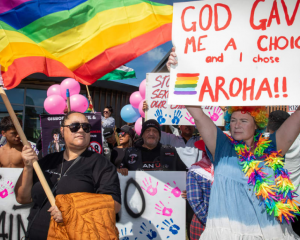Figures released to The New Zealand Herald under the Official Information Act showed of the 73,512 jobs attended by the New Zealand Fire Service in the year to June, firefighters turned back from 20,373.
The majority of false alarms - 41% - came from the Auckland region, with up to 74% of all calls to central city stations turning out to be false alarms.
Wellington had the second-largest number of false alarms and good-intent calls (15%) followed by Canterbury (12%).
Dunedin Chief Fire Officer Dave Seque said he was unsure what sort of false alarms the figures referred to, but there were "all types of false alarms".
There were "good-intent" false alarms, malicious ones and ones caused by faults in alarm systems connected directly to the fire service, which could be caused by problems like leaky roofs.
Alarms could also be set off during building renovations by activities such as welding or floor sanding, or even from steam coming from open bathroom doors.
Nationally, the Fire Service is distributing pamphlets detailing the cost and effect of false alarms in an attempt to reduce their number.
A fire service callout cost an average of $1250, though a percentage of that amount was often reclaimed in fines.
Mr Seque said Dunedin traditionally had one of the lowest number of false alarms in New Zealand, as it worked successfully with building owners, alarm contractors and the University of Otago, which had a "huge" number of alarm systems, to improve the situation.
Those groups were educated to make sure, for instance, when renovations were under way, that systems were isolated so alarms were not set off.
The Herald reported if the Fire Service attended more than one avoidable false alarm at a business or home in a year, it would bill the owner $1250, to cover costs such as equipment, petrol and wages.
Mr Seque said in Dunedin, people would be charged for the third alarm in 12 months, but those charges were waived if people were "honestly and actively trying to fix the problem".
Auckland senior fire investigator Russell Dickson said every call to the Fire Service was treated as genuine until proved otherwise.
The fines were not about making money, but about putting pressure on property owners to reduce the number of false alarms thereby reducing costs and the carbon footprint and saving resources for real fires.
Mr Seque said people should not worry about those issues, though, if they thought they saw a fire.
"Definitely, if they suspect there is a fire, call 111."
Additional reporting by The New Zealand Herald












